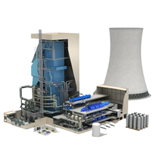Understanding the Importance of Power Quality in Telecommunications
Telecommunications connects us all, but it depends on stable power to function correctly. Poor power quality can lead to service interruptions and equipment damage, impacting customer satisfaction and costs. With increasingly complex networks, maintaining good power quality is vital. Power analysers help by monitoring power conditions and identifying issues before they cause problems. This article will explore the importance of power quality in telecommunications and why having a power analyser is an intelligent investment.
Types of Power Quality Problems
-
Voltage Sags/Dips
Voltage sags or dips are quick drops in voltage levels, lasting from a fraction of a second to several seconds, caused by sudden increases in power usage or faults in the power supply. In telecommunications, even minor sags can disrupt sensitive equipment, leading to shutdowns and downtime, which can be expensive.
-
Voltage Swells
Voltage swells are quick increases in voltage, usually caused by sudden drops in load. These swells can surpass the equipment's rated voltage, risking damage to telecommunications devices. Like sags, swells can lead to equipment failures and overheating, affecting service reliability.
-
Transient Voltages
Transient voltages are quick spikes in voltage that last less than one cycle. Lightning strikes, power switching, or inductive loads can cause them. Transients can severely damage telecommunication equipment, leading to failures and costly repairs.
-
Harmonics
Harmonics are distortions in the power signal that occur when devices like switching power supplies draw power in a non-linear way. They can lead to equipment locking up, data corruption, and wire overheating, reducing power quality and efficiency.
Effects of Power Quality Issues on Telecommunication Equipment
-
Equipment Malfunctions and Offline Tripping
Telecommunication devices need to operate within specific voltage ranges. These devices can shut down to prevent damage if the voltage drops or rises too much. Downtime can cause service interruptions and increased costs.
-
Impact of Transient Voltages
Voltage spikes can harm sensitive telecommunication devices, causing data loss or equipment malfunctions, which can disturb communication networks. Even a short spike in voltage can cause damage.
-
Harmonics, Causing Data Corruption and Overheating
Signals can be misinterpreted by harmonics, which can lead to data corruption and communication errors. Additionally, they can cause equipment to overheat, increasing maintenance costs and risking failures.
-
Electrical Noise Disrupting Data Signals
Electrical noise from power quality issues can interrupt data signals. This interference reduces transmission efficiency and results in poor data quality, negatively affecting telecommunications reliability.
The Impact of Power Quality on Telecommunication Services
-
How Power Quality Phenomena Affect Data Transmission Rates
Power quality problems like voltage sags, swells, transients, and harmonics can slow down data transmission in telecommunications. When voltage fluctuates, it can lead to slower speeds, higher delays, and even data loss. This instability affects data transfer efficiency, resulting in poor service quality and unhappy customers.
-
The Relationship Between Power Quality and Service Reliability
Service reliability is closely tied to power quality. Poor power quality increases the chances of equipment failures, leading to more frequent service outages. Customers expect consistent and reliable service, so disruptions can significantly affect their satisfaction and trust in the provider. Therefore, maintaining good power quality is crucial for ensuring reliable telecommunications.
-
Immediate Costs
During service interruptions, telecommunication companies may experience a significant revenue loss as customers are unable to access services. This lost revenue can be dangerous if the trouble occurs during peak usage times or major events when demand is high.
-
Long-Term Consequences
Service interruptions can also damage a provider's long-term reputation. Frequent outages can make customers lose trust and look for more reliable options. Rebuilding a damaged reputation takes time and resources, so companies must manage power quality effectively to avoid these negative impacts.
Advantages of Implementing Power Quality Analysers
-
In-House Monitoring of Power Quality and Energy Usage
Power quality analysers enable companies to monitor their power quality and energy consumption in-house. This capability means continuous assessment, helping companies identify issues in real-time and optimise energy use more effectively.
-
Reducing Reliance on External Service Companies
Telecommunication companies can reduce their dependence on external service providers for power assessments. This shift helps companies to save money on service fees and avoid delays associated with scheduling outside technicians.
-
Early Detection of Power Quality Issues
One key benefit of power quality analysers is their ability to detect power quality problems early. Companies can take preventive measures to avoid equipment failures and service disruptions.
-
Improving Overall Service Quality and Reliability
Power quality analysers help improve the overall reliability and quality of telecommunications services by consistently monitoring and early detecting issues. This proactive approach leads to fewer outages, better customer satisfaction, and a stronger provider's reputation.
Conclusion
As discussed, issues like voltage sags, swells, transients, and harmonics can disrupt service, damage equipment, and affect reliability. These problems can lead to immediate costs and long-term damage to customer trust and company reputation.
Investing in power quality analysers helps telecommunications providers monitor power conditions and fix issues before they become significant problems. This proactive approach reduces dependence on outside services, improving efficiency and quality. Ensuring good power quality is vital for customer satisfaction and maintaining a reliable telecommunications network.
Take Action for Better Power Quality!
Ready to improve your telecommunications efficiency? Request quotes for power quality analysers now and secure your network’s reliability!
FAQ:
-
Why is power quality important?
Good power quality ensures that telecommunications networks run smoothly, preventing equipment failures and service interruptions that can upset customers.
-
What are common power quality issues?
Common issues include voltage drops (sags), voltage spikes (swells), sudden voltage changes (transients), and electrical distortions (harmonics).
-
How do power quality analysers help?
Power quality analysers monitor electrical conditions in real-time, allowing companies to find and fix issues before they cause problems.

.jpg)

-160x160-state_article-rel-cat.png)







-160x160-state_article-rel-cat.png)










